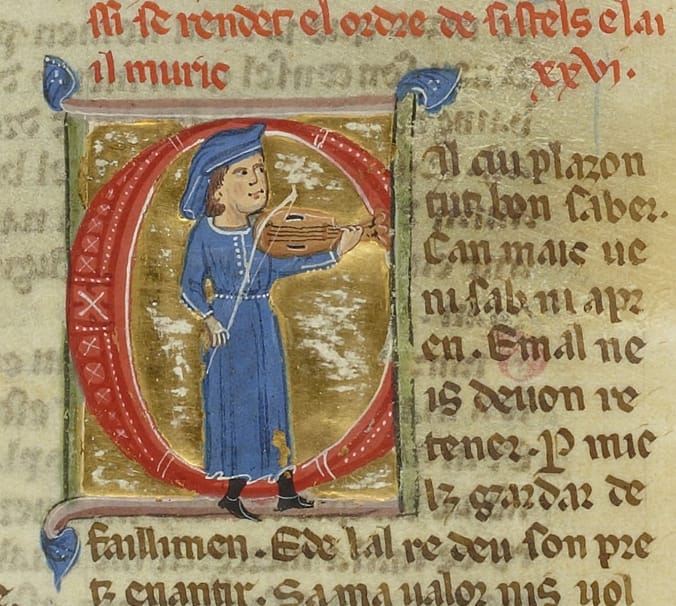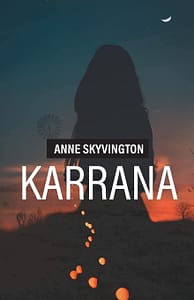W. H. Auden: Stop the Clocks
Stop all the clocks, cut off the telephone,
Prevent the dog from barking with a juicy bone,
Silence the pianos and with muffled drum
Bring out the coffin, let the mourners come.
For the complete poem, go to the following site:
https://www.poetryfoundation.org/poems/159365/twelve-songs-ix
* Note the melodic iambic pentameter and internal rhyme
Lord G.G. Byron: (1788-1824): Extract from Beppo
A great example of romantic poetry: expressing sentiments, emotions and the imagination
I love the language, that soft bastard Latin,
Which melts like kisses from a female mouth,
And sounds as if it should be writ on satin,
With syllables which breathe of the sweet South,
And gentle liquids gliding all so pat in,
That not a single accent seems uncouth,
Like our harsh northern whistling, grunting guttural,
Which we’re obliged to hiss, and spit, and sputter all.
I like the women too (forgive my folly!),
From the rich peasant cheek of ruddy bronze,
And large black eyes that flash on you a volley
Of rays that say a thousand things at once,
To the high Dama’s brow, more melancholy,
But clear, and with a wild and liquid glance,
Heart on her lips, and soul within her eyes,
Soft as her clime, and sunny as her skies.
Eve of the land which still is Paradise!
Italian Beauty didst thou not inspire
Raphael, who died in thy embrace, and vie
With all we know of Heaven, or can desire,
In what he hath bequeathed us? – in what guise,
Though flashing from the fervour of the Lyre,
Would words describe thy past and present glow,
While yet Canova can create below?
The Metaphysical Poets wrote as if God was in heaven and all was well down here on earth
John Donne: The greatest love poet of them all wrote to God like a lover: 1572-1631
The Good Morrow
I wonder, by my troth, what thou and I
Did, till we loved? Were we not weaned till then?
But sucked on country pleasures, childishly?
Or snorted we in the Seven Sleepers’ den?
’Twas so; but this, all pleasures fancies be.
If ever any beauty I did see,
Which I desired, and got, ’twas but a dream of thee …
The Canonisation
For God’s sake hold your tongue, and let me love,
Or chide my palsy, or my gout,
My five gray hairs, or ruined fortune flout,
With wealth your state, your mind with arts improve,
Take you a course, get you a place,
Observe his honour, or his grace,
Or the king’s real, or his stampèd face
Contemplate; what you will, approve,
So you will let me love …
A Valediction Forbidding Mourning
As virtuous men pass mildly away,
And whisper to their souls to go,
Whilst some of their sad friends do say
The breath goes now, and some say, No:
So let us melt, and make no noise,
No tear-floods, nor sigh-tempests move;
’Twere profanation of our joys
To tell the laity our love …
The Sun Rising
Busy old fool, unruly sun,
Why dost thou thus,
Through windows, and through curtains call on us?
Must to thy motions lovers’ seasons run?
Saucy pedantic wretch, go chide
Late school boys and sour prentices,
Go tell court huntsmen that the king will ride,
Call country ants to harvest offices,
Love, all alike, no season knows nor clime,
Nor hours, days, months, which are the rags of time …
Batter My Heart, three-person’d God
Batter My Heart, three-person’d God, for you
As yet but knock, breathe, shine, and seek to mend;
That I may rise and stand, o’erthrow me, and bend
Your force to break, blow, burn, and make me new.
I, like an usurp’d town to another due,
Labour to admit you, but oh, to no end;
Reason, your viceroy in me, should defend,
But is captiv’d, and proves weak or untrue.
Yet dearly I love you, and would be lov’e fain,
But I am betroth’d unto your enemy;
Divorce me, untie or break that knot again.
Take me to you, imprison me, for I,
Except you enthrall me, never shall be free,
Nor ever chaste, except you ravish me.
Eliot Quote: We shall not cease from exploration, and the end of all our exploring will be to arrive where we started and know the place for the first time.
[The feature image for this post is of a painting by Henry Holiday of Dante and Beatrice]




Leave a Reply